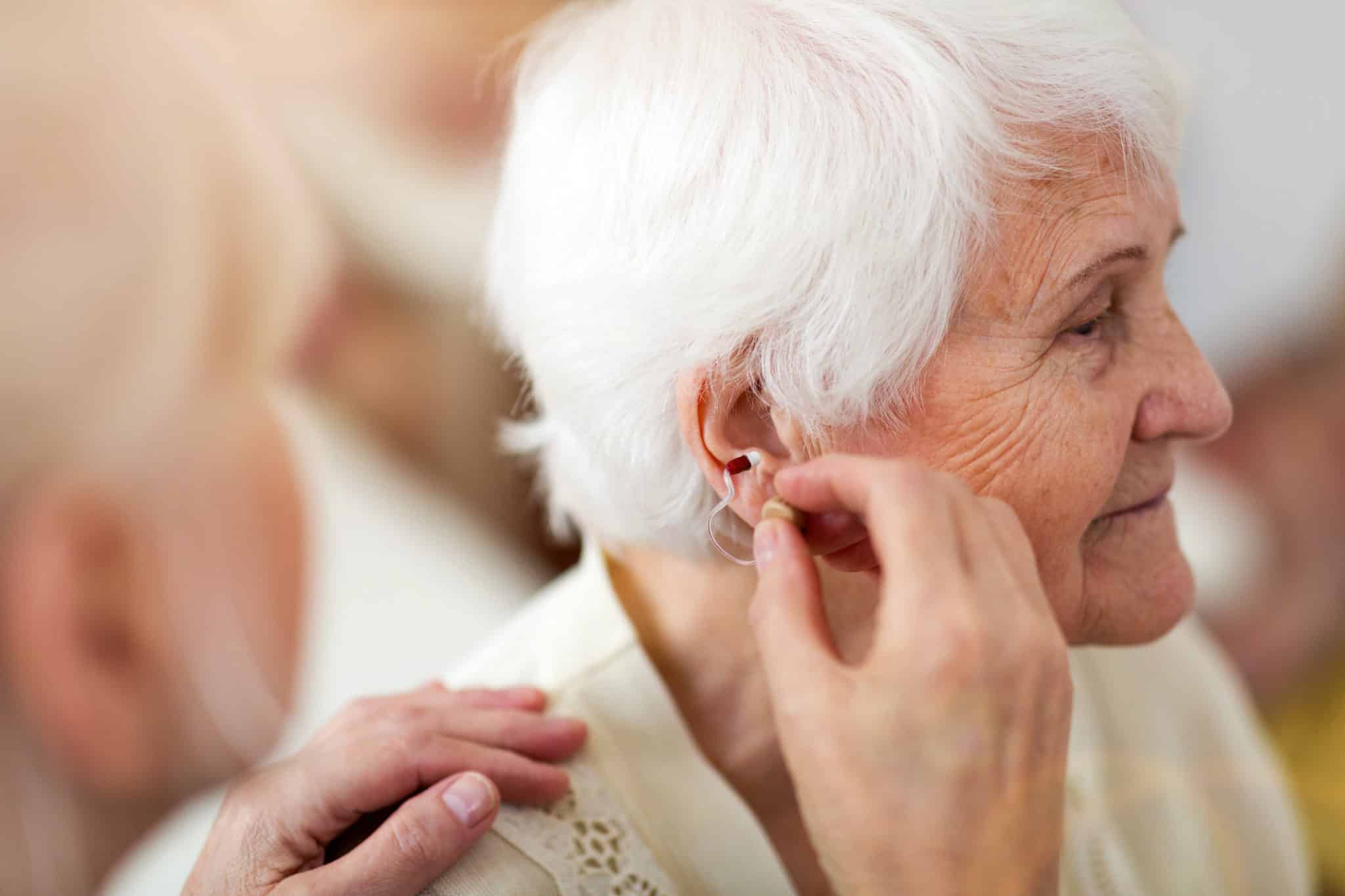Hearing Loss in Older Adults

Hearing loss adds to the misconceived stereotype that older adults are “slow,” which is almost always not the case! Identifying and treating hearing loss head on will help to avoid the negative notions that come with it.
Older adults who let their hearing loss go untreated sometimes become angry, lonely or depressed, which in turn could affect their mental and even physical health. That’s why early detection is important in dealing with the complications of hearing loss. Identifying, accepting, and treating this sensitive issue is key to maintaining cognitive function as we grow older.
Identifying hearing loss
Age-related hearing loss (also known as presbycusis) usually affects both ears equally and develops gradually as a person grows older. Someone with presbycusis may not even realize that they lost some hearing at first due to the slow progression of decline.
Consult a doctor about hearing loss if you or a family member displays the following symptoms frequently:
- Trouble hearing over the phone, computer or other smart devices
- Difficulty following conversations when multiple people are talking
- Often asking people to repeat what they are saying
- Often think that others mumble when they talk
- Feel the need to turn up volume on TVs, radios, and other devices, to the point that others complain about the excessive volume
- Have problems hearing due to distant background noise
- Cannot decipher softer voice registers, especially among women and children
How to handle hearing loss
After identifying the extent of hearing loss with your doctor, it’s important to take the following steps:
- Notify family, friends, and others about your hearing problem;
- Ask people to talk to you at a reasonable pace and volume. Also, make sure they are facing you when speaking. Pay close attention to the facial expressions and gestures of others when they are talking;
- If someone is talking to you, let the person know if you do not understand something they said; and
- Always try to find quieter spots to have conversations with others.
However, the most important thing you can do to achieve the best results is to seek professional treatment or advice from a doctor or other hearing loss experts, like an ENT (ear, nose and throat), or audiologist.
Devices to help
Luckily, there are many devices to help aid hearing loss. Before purchasing a device, find out if your health insurance will cover the costs. In most cases, insurance will cover most of the cost, if not all! Also, it’s worth it to ask for a trial period to ensure the device is a right fit for the long haul.
Hearing aids vary in size, cost, and features offered. It’s important to ask a doctor or specialist about which type of hearing aid they recommend based on the extent of your hearing loss. While the smallest hearing aids are most appealing, they can sometimes be the least effective.
Cochlear implants are complex electronic devices that provide a sense of sound to people with extreme hearing loss. Part of the device must be surgically implanted within the ear. Hearing through a cochlear implant is much different than a hearing aid and requires significant follow-up therapy to learn a new way of hearing.
Alerting devices connect to a doorbell, phone or alarm and emit loud sounds, vibrations or flashing lights. Their purpose is to let someone with hearing loss know that something that requires their attention is happening nearby.
Hearing assistance at UMC at Collingswood
Here at United Methodist Communities at Collingswood, we understand the struggles that come with hearing loss and provide individualized care to each resident. Our highly trained associates and medical professionals are available 24/7 to provide technological support with hearing aid devices, as well as emotional support to ease the complications of hearing loss.
To find out more about the associates and medical professionals at UMC at Collingswood in Camden County, please contact us today. We look forward to hearing from you.




